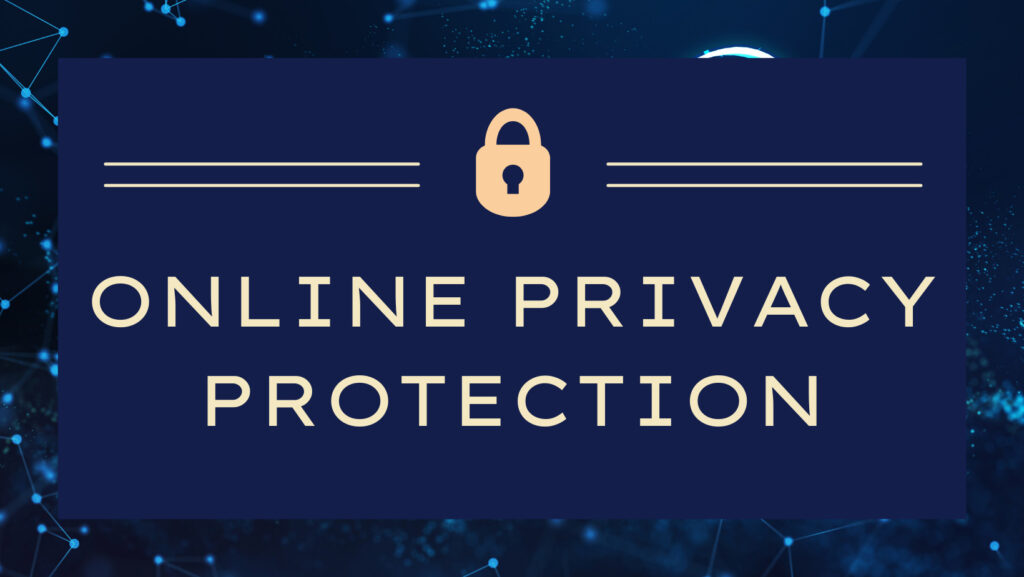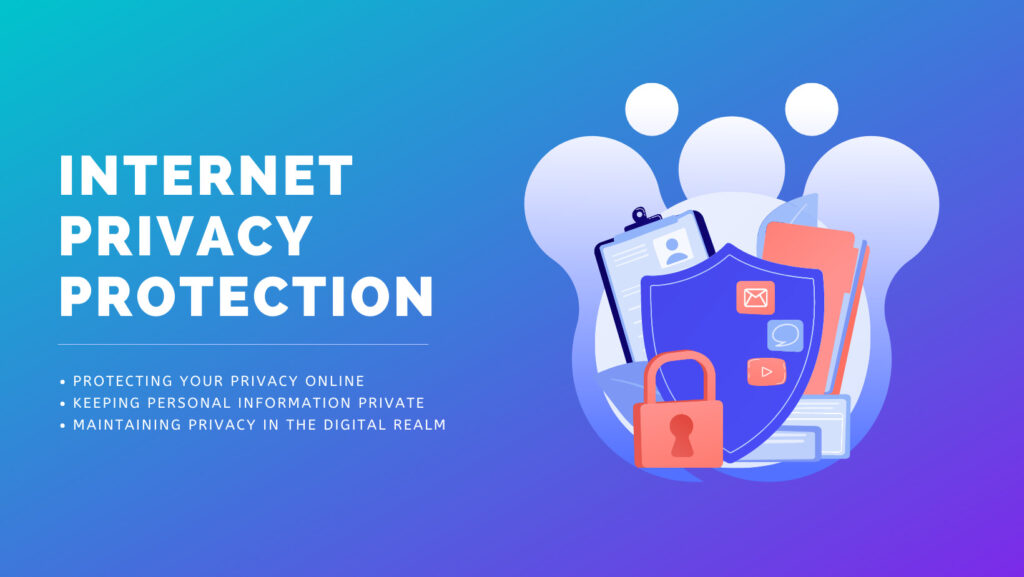
Online privacy protection
Online Privacy Protection
In today’s digital age, maintaining online privacy has become increasingly vital. With the widespread collection and utilization of personal data, online privacy protection is crucial for safeguarding sensitive information. This comprehensive guide explores the importance of internet online privacy protection, provides essential tips and best practices, and empowers you to keep your personal information private in the digital realm.
Internet Privacy Protection
- Understanding Online Privacy: Learn the concept of online privacy, which refers to the control individuals have over their personal information shared and collected online.
- Risks and Consequences: Explore the potential risks and consequences of privacy breaches, such as identity theft, data breaches, financial fraud, and reputational damage.
- Legal and Ethical Considerations: Understand the legal frameworks and ethical implications surrounding online privacy, including data protection regulations and privacy policies.

Internet Privacy Protection
Your Online Privacy Protection:
- Strong Passwords: Create unique and strong passwords for each online account, incorporating a mix of alphanumeric characters and symbols.
- Two-Factor Authentication (2FA): Enable 2FA whenever available, adding an extra layer of security by requiring a secondary verification method.
- Secure Browsing: Use encrypted connections (HTTPS) for websites, avoid using public Wi-Fi networks for sensitive activities, and regularly update your web browsers.
- Privacy Settings: Familiarize yourself with the privacy settings of social media platforms, adjust them according to your preferences, and limit the visibility of personal information.
- Limited Sharing of Personal Information: Be cautious about sharing sensitive personal information online, especially on public platforms or with unknown individuals.
- Phishing Awareness: Stay vigilant against phishing attempts by verifying the authenticity of emails, messages, and links before providing any personal information.
- Regular Software Updates: Keep your operating system, applications, and antivirus software up to date to ensure you have the latest security patches.
Keeping Personal Information Private
- Data Minimization: Minimize the amount of personal information you share online. Only provide necessary details and avoid oversharing.
- Secure File Storage: Utilize encrypted storage solutions or cloud services with strong security measures to protect sensitive files and documents.
- Use Virtual Private Networks (VPNs): Employ VPNs to encrypt internet connections, ensuring your online activities remain private and secure.
- Email Encryption: Use encrypted email services or encryption tools to protect the content of your emails from unauthorized access.
- Social Engineering Awareness: Be cautious of social engineering tactics aimed at manipulating individuals into revealing personal information. Practice skepticism and verify requests before sharing any sensitive data.
Maintaining Privacy in the Digital Realm:
- Digital Footprint Management: Regularly review your online presence, including social media profiles and search engine results, and adjust privacy settings accordingly.
- Read Privacy Policies: Familiarize yourself with privacy policies and terms of service for online platforms and services, understanding how your data is collected, stored, and used.
- Limited Third-Party Access: Be mindful of granting permissions to third-party applications and services, and regularly review and revoke unnecessary access.
- Educate Yourself: Stay informed about emerging privacy threats, best practices, and technologies that can help protect your online privacy.
- Privacy-Focused Tools: Explore privacy-enhancing tools such as browser extensions, ad blockers, and privacy-oriented search engines to enhance your online privacy.
Conclusion:
Protecting your online privacy is essential for safeguarding your personal information in today’s digital world. By implementing the tips and best practices outlined in this guide, you can maintain control over your data, minimize privacy risks, and navigate the digital landscape with confidence. Remember, prioritizing online privacy empowers you to protect yourself from identity theft, data breaches, and other potential privacy infringements. Stay informed, be proactive, and make privacy a priority to ensure a safer and more secure online experience.
Tired of having your personal information exposed online? Want to take back control of your digital life?
👉 Contact Us to discover top-tier strategies for Online Privacy Protection. Learn how to shield your online data from prying eyes and safeguard your personal information from cyber threats.
✅ Embrace a secure digital lifestyle with our comprehensive guide. Become a pro at online data protection and ensure your peace of mind. Don’t wait until it’s too late. Act now!



